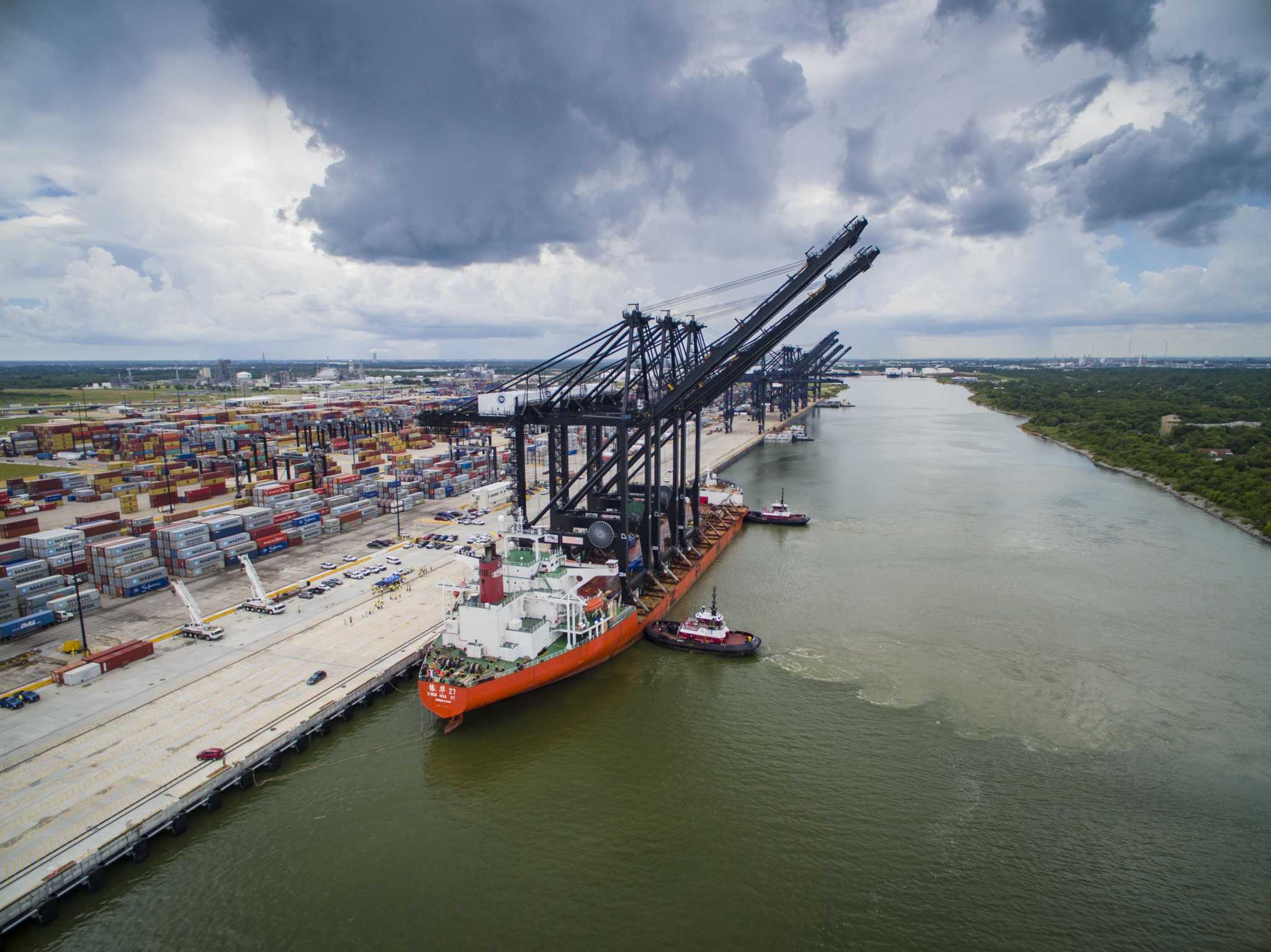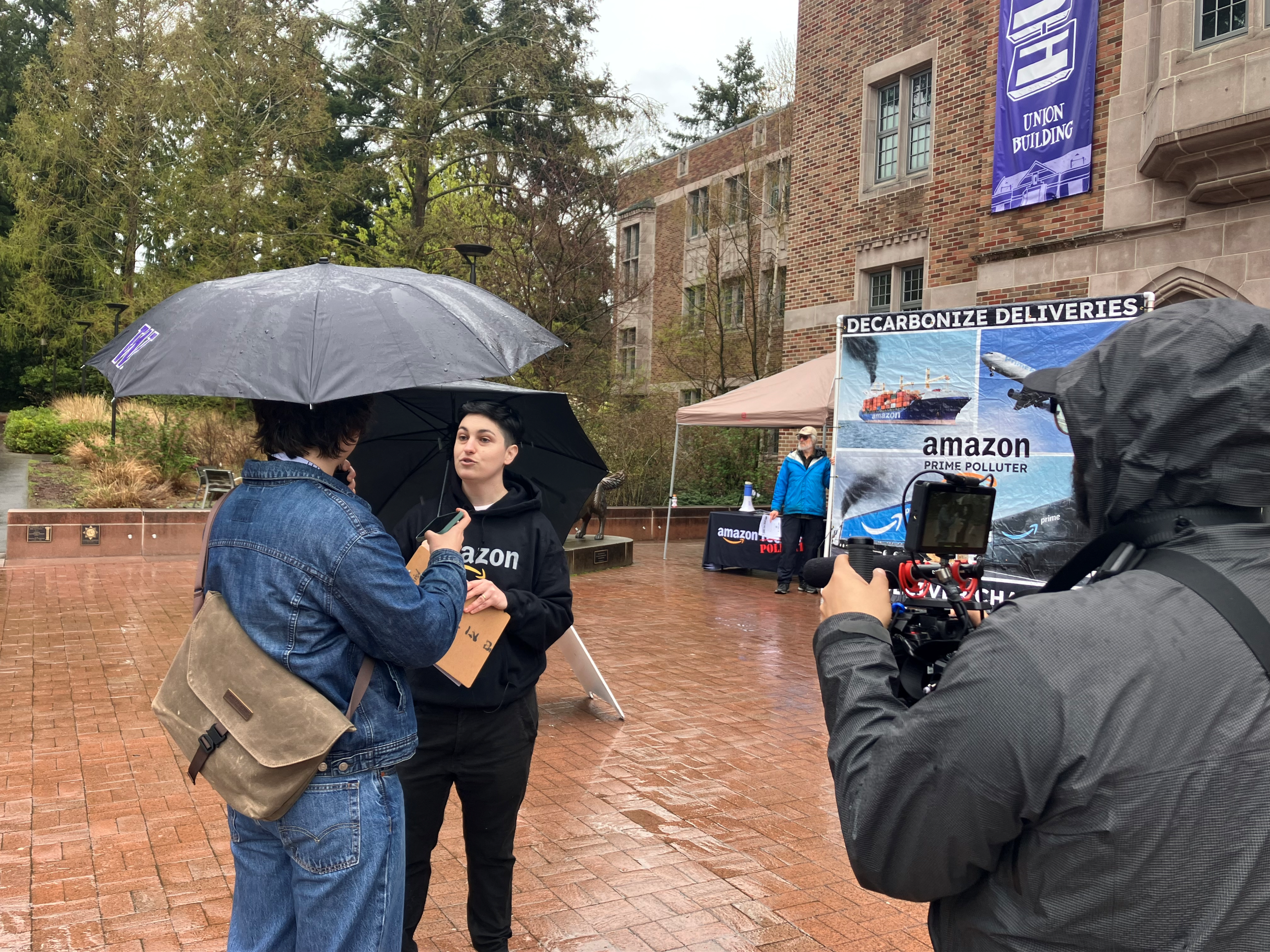


Houston’s Rice University will host leading environmental journalists from across the country this month. One of the first issues they should address is an environmental justice one: Houston and Walmart’s lack of action to clean up port pollution.
In recent months, supply chain issues have put a spotlight on the ships, trucks, and logistics that move our goods – electronics, food, furniture – to our stores and doors. But, one significant issue with the supply chain continues to be underreported: the emissions that ships spew into the air and into our ocean, impacting our port neighbors and the environment.
I lead the Ship It Zero campaign, a coalition of climate nongovernmental organizations calling on America’s top retailers to rapidly invest in 100% zero-emissions ocean shipping. On Cyber Monday 2021, we released a report finding Walmart to the be the top ocean cargo import polluter to the United States, emitting at least 11,508,463 tons of carbon dioxide from 2018-2020. Importantly, Walmart’s top port of imports to the United States is Houston, with the company shipping 401,808 twenty-foot equivalent units through the Port of Houston during the same period. Walmart’s top carrier is CMA-CGM, making the retailer and its carrier super-polluters in ocean shipping.
Walmart, CMA-CGM, and the international ocean cargo shipping industry currently rely on the dirtiest fuel on the market: heavy fuel oil, a cheap, tarlike substance containing asthma and cancer-causing air pollutants including particulate matter. On its current trajectory, ocean trade is projected to grow by as much as 130% by 2050 over today’s trade volume: if ships remain on fossil fuels, they will represent 17% of global carbon dioxide emissions by mid-century.
Communities of color and working-class communities are hit the hardest by these threats. The Houston Chronicle flagged that families “living along the Houston Ship Channel — where real estate and rents are far more affordable — live with daily assaults on their health. The cancer risk for residents of Manchester and the neighboring community of Harrisburg, where Valero operates a refinery, is 22 percent higher than for the rest of Houston.”
Additionally, a University of Texas School of Public Health study found that children living within 2 miles of the Ship Channel are 56 percent more likely to develop a type of leukemia than those living 10 miles away. The study also said children living in areas with increased emissions from petrochemical plants were found to have an increased risk of developing any type of leukemia.
In December of last year, the Houston Chronicle editorialized about the Port of Houston saying, “While the Port of Houston has demonstrated that it is attuned to the challenges of climate change, its leadership has thus far declined to make any ambitious proclamations on reducing emissions and overall pollution, preferring an ad hoc approach that flies under the radar.” Ouch.
The editorial went on to say that other rival ports are developing “more cohesive strategies to move toward cleaner, healthier practices.”
This is something that we are seeing too in the race to zero emissions for ocean shipping – just last month the Ports of Shanghai and Los Angeles announced that they will work with industry to reduce greenhouse gas emissions from the movement of cargo throughout the 2020s, including a goal to “begin” transitioning to zero-carbon fueled ships by 2030 to cut emissions from one of the world’s busiest cargo routes.
Last November, the Los Angeles City Council unanimously voted to adopt Councilmember Nithya Raman’s resolution calling on top ocean cargo importers to the United States, including Walmart, to commit to making all port calls to the San Pedro Port Complex and the Port of Los Angeles 100% zero-emissions ocean shipping by 2030.
Major shipping companies know that we are at tipping point too. Danish shipping giant Maersk announced this year that it will install offshore electric-powered charging stations at up to 100 ports globally to reduce emissions from the approximately 3,500 fossil-fueled ships in its fleet. This will reduce carbon emissions by 5 million tons a year overall.
Cleaning up our ports isn’t just an environmental issue; it’s a matter of building a healthier America and world. It’s about time that Houston, Walmart, and CMA-CGM act to clean up our ports and protect our neighbors.
Dawny’all Heydari is the campaign lead for Ship It Zero at Pacific Environment.

Recent Updates





